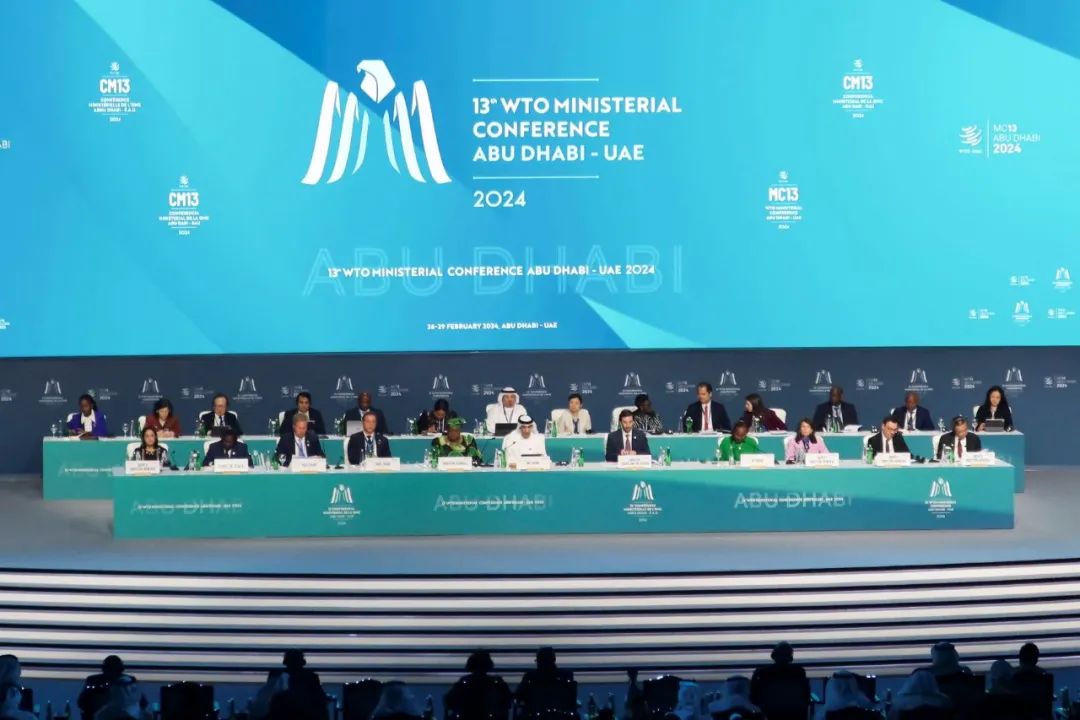The WTO at a Crossroads: What the Failed Ministerial Conference Means
Wang Zhongmei source:CFR
source:CFR
The World Trade Organization (WTO) held its thirteenth ministerial conference (MC13) last week in Abu Dhabi, United Arab Emirates. Five CoC experts assess the ministerial conference’s failure to break the deadlock on new initiatives—such as agricultural trade, fisheries subsidies, and new rules for digital trade—and how, given great power tensions and growing protectionism, smaller joint initiatives could be the future of world trade.
It Is Much Easier to Destroy Than Build
Many experts were skeptical about achieving any substantive results going into WTO MC13 despite several promising proposals. Among those proposals, the most attention-grabbing, yet uncertain, was on Joint Statement Initiatives. WTO members started Joint Statement Initiatives in 2017 to reinvigorate the WTO’s deadlocked negotiating process, hoping these plurilateral negotiations among a group of members could agree on new rules that would then be formally integrated into the WTO legal text. The Investment Facilitation for Development (IFD) agreement, the first Joint Statement Initiative to finalize text, boasts participation from over 120 WTO members across all regions, representing three-quarters of WTO membership. Notably, this includes eighty-five developing economies, with twenty categorized as least-developed economies. The IFD initiative is open to all members and will be implemented based on the most favored nation principle. In other words, even nonparticipating members can benefit from it. The inclusion of Joint Statement Initiatives in the WTO legal framework would have been a significant breakthrough in WTO negotiations. Compared with other minilateral negotiations that claim to be alliance- or club-based, the Joint Statement Initiatives within WTO stand out for their commitments to transparency and inclusiveness. Unfortunately, some major countries, including India, once again opposed and blocked the formal inclusion of the IFD agreement into the WTO framework at WTO MC13. After this failure, the gap between the more than 120 signatories and the full 166-member roster now might be insurmountable. The WTO is at a crossroads. Members are most interested in preferential trade arrangements, which tend to be more exclusive and discriminating, at a time when multilateralism faces obstacles due to the misuse of voting rights. In our current world, marked by great power disparities, the strategic competition between the United States and China has given rise to a concerning rise in trade blocs, which jeopardize the gradual recovery of the global economy. Just ahead of the ministerial conference, the United States once again published its annual report on China’s WTO compliance. This appears to intensify tensions between the two sides, while simultaneously diverting attention from the United States’ ongoing obstruction of the revival of the appeal mechanism for dispute settlement. Despite these challenges, several Joint Statement Initiatives within the WTO continue to receive support from major players like China, Japan, South Korea, and the European Union. This signals that the WTO still possesses resilience and relevance. The Joint Statement Initiatives, including the IFD, have traversed a six-year negotiation process from 2017 to 2023, making their success in producing some substantive results on development-relevant issues all the more precious. Regrettably, other Joint Statement Initiatives like e-commerce and services domestic regulation will probably experience similar difficulties to being incorporated into the WTO legal framework. As we reflect on this situation, it should be recognized that the real constructive role of WTO members should be to foster integration, consensus, and cooperation, rather than repeatedly sabotaging multilateral negotiations. While some nations might have reaped short-term benefits from shifting toward trading blocs or geopolitically driven trade, perpetuating divisions and distortions in the global trade and investment landscape ultimately harms the overall global economy and undermines multilateralism.


